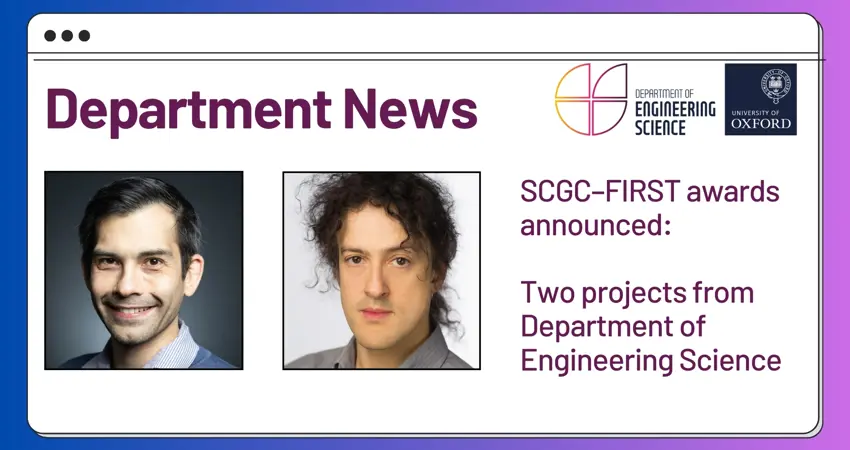17 Apr 2024
SCGC–FIRST awards mark significant milestone in the University of Oxford’s collaboration with SCG Chemicals Public Company Limited (SCGC)
The four projects selected, two of which are from the Department of Engineering Science, exemplify innovation and promise to accelerate sustainable technology development in the chemicals industry

Professor James Kwan (L) and Professor Phil Torr (R)
The SCG – Oxford Centre of Excellence is a vibrant team of scientists spanning the expertise of the University of Oxford to find sustainable solutions for some of our greatest global challenges.
In November 2023 the University of Oxford and SCG Chemicals launched the £1m early-stage innovation fund SCGC-FIRST, a major new award scheme to develop novel ideas and nascent research from Oxford’s laboratories into environmental sustainability solutions for the global chemicals industry. SCGC-FIRST will be administered by the University and will run for four years initially, supporting innovative research and translation projects that support SCGC’s environmental, social and governance (ESG) objectives.
From amongst the exceptional applications received from the Departments of Chemistry, Materials, and Engineering Science for the inaugural awards, the four selected projects include two from Engineering Science:
Discovering chemical reaction mechanisms for cost-effective and carbon-neutral hydrogen production using reinforcement learning
Philip Torr, Professor of Engineering Science
Professor Torr and his team aim to develop cost-effective, carbon-neutral hydrogen production via ammonia synthesis and decomposition, using Reinforcement Learning to understand the chemical reaction mechanisms.
Packed bed sonochemical reactor design for catalytic CO2 reduction – design and characterisation
James Kwan, Associate Professor of Engineering Science
There is a growing need to supply a sustainable and economical avenue for CO2 waste streams from chemical processes. Utilising CO2 is part of the global shift towards Net Zero goals by governments and industries such as SCGC. The overarching objective of this project is to convert CO2 to hydrocarbons with catalytic sonochemistry. But current approaches use suspended catalysts, which require separation. This limits scalability and industrial translation. Prof Kwan and his group propose a novel design of a packed bed sonochemical reactor (PBSR) to address these challenges.
The next call for SCGC–FIRST applications will launch in early Michaelmas 2024.




